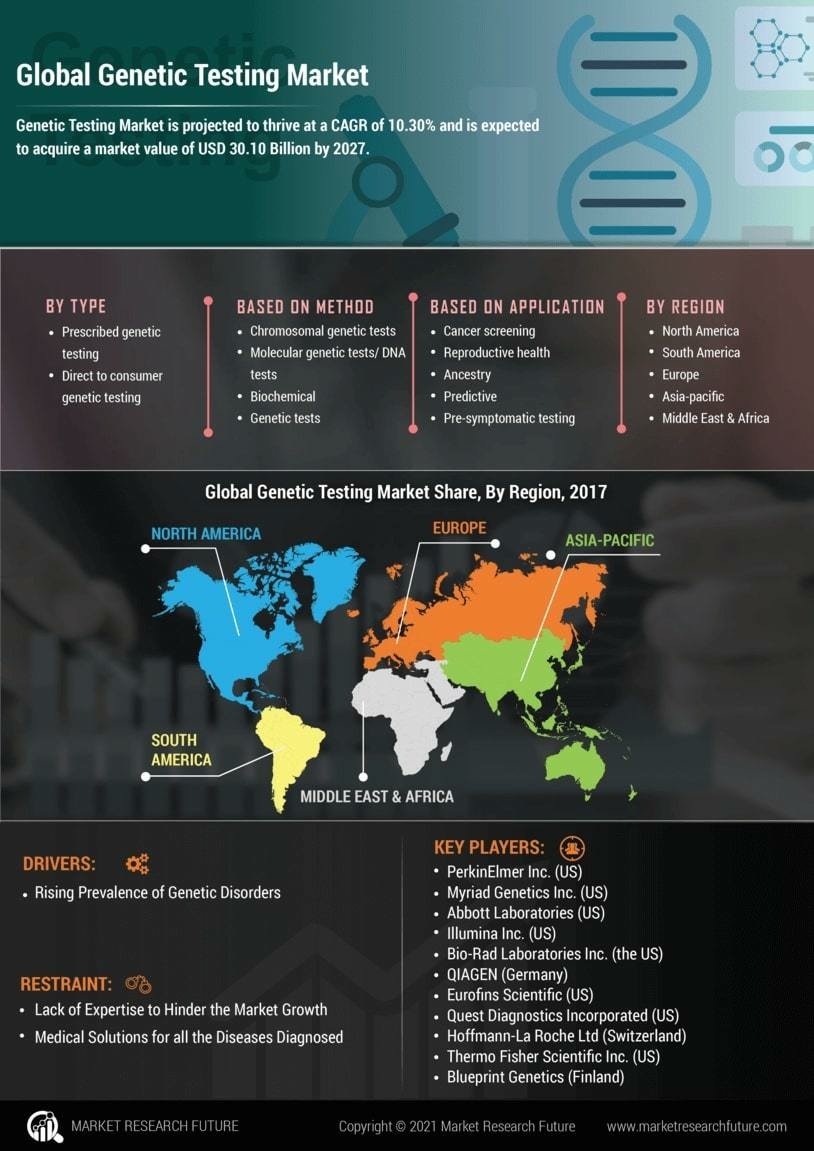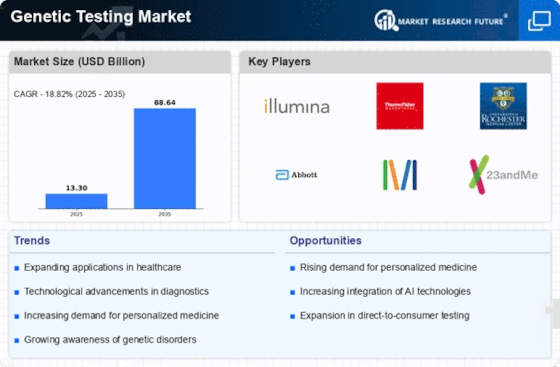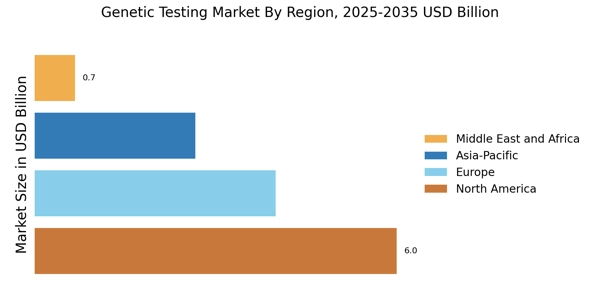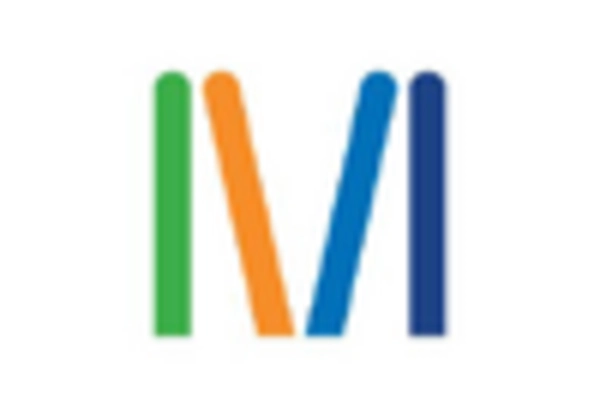Rising Prevalence of Genetic Disorders
The increasing incidence of genetic disorders is a primary driver for the Genetic Testing Market. Conditions such as cystic fibrosis, sickle cell anemia, and various hereditary cancers are becoming more prevalent, prompting a greater need for genetic testing. According to recent estimates, approximately 1 in 33 babies is born with a genetic disorder, which underscores the urgency for early detection and intervention. This trend is likely to propel the demand for genetic testing services, as healthcare providers and patients seek to understand genetic risks and make informed decisions. The Genetic Testing Market is thus positioned to expand significantly as awareness of genetic disorders grows, leading to increased testing and subsequent treatment options.
Advancements in Sequencing Technologies
Technological advancements in sequencing technologies are revolutionizing the Genetic Testing Market. Innovations such as next-generation sequencing (NGS) have dramatically reduced the cost and time required for genetic testing, making it more accessible to a wider population. The cost of sequencing a human genome has plummeted from thousands of dollars to a few hundred, facilitating the growth of genetic testing services. As these technologies continue to evolve, they are likely to enhance the accuracy and efficiency of genetic tests, further driving market expansion. The Genetic Testing Market stands to gain from these advancements, as healthcare providers increasingly adopt cutting-edge technologies to meet the rising demand for comprehensive genetic testing.
Regulatory Support and Reimbursement Policies
Supportive regulatory frameworks and favorable reimbursement policies are crucial drivers for the Genetic Testing Market. Governments and health organizations are increasingly recognizing the value of genetic testing in preventive healthcare and disease management. As a result, many countries are implementing policies that facilitate access to genetic testing services. Additionally, insurance companies are beginning to cover genetic tests, which alleviates the financial burden on patients. This trend is expected to encourage more individuals to seek genetic testing, thereby expanding the market. The Genetic Testing Market is likely to experience growth as these supportive measures continue to evolve, promoting wider adoption of genetic testing across various demographics.
Growing Awareness and Acceptance of Genetic Testing
Public awareness and acceptance of genetic testing are on the rise, significantly influencing the Genetic Testing Market. Educational campaigns and media coverage have played a crucial role in demystifying genetic testing, leading to increased consumer interest. Surveys indicate that a substantial percentage of individuals are now more willing to undergo genetic testing for both health and ancestry purposes. This shift in perception is likely to drive market growth, as more people seek out testing services to gain insights into their genetic predispositions. The Genetic Testing Market is thus expected to benefit from this trend, with a projected increase in the number of tests conducted annually, reflecting a broader societal acceptance of genetic information.
Integration of Genetic Testing in Personalized Medicine
The integration of genetic testing into personalized medicine is transforming the landscape of healthcare, thereby driving the Genetic Testing Market. Personalized medicine tailors treatment plans based on an individual's genetic makeup, enhancing the efficacy of therapies. As healthcare systems increasingly adopt this approach, the demand for genetic testing is expected to rise. For instance, pharmacogenomics, which studies how genes affect a person's response to drugs, is gaining traction. This shift towards personalized treatment strategies is projected to contribute to a market growth rate of over 10% annually in the coming years. Consequently, the Genetic Testing Market is likely to see a surge in investments and innovations aimed at developing more precise testing methodologies.

















